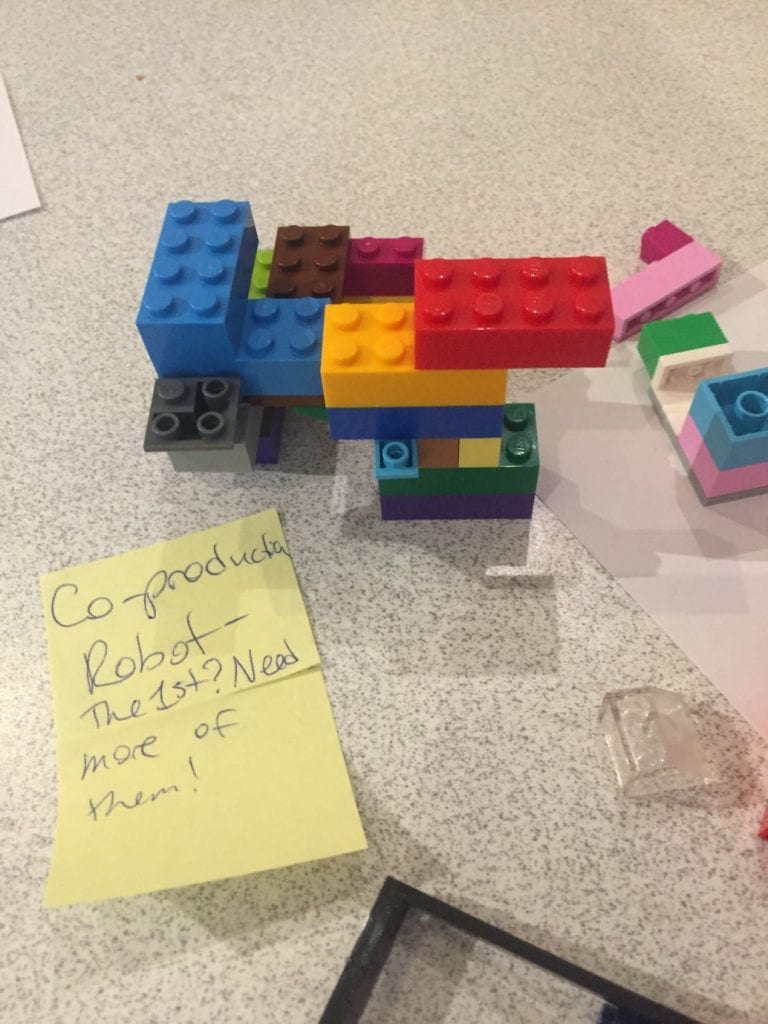Reflecting Together – what does good co-production look like?
By Briony Fleming, on 11 October 2019
This blog was written by Sarah Markham about her reflections on the UCL Centre for Co-production in Health Research co-creation session in September 2019.
It was a typically rainy day in September for our co-creation session for the UCL Centre for Co-production in Health Research. In spite of the map app on my so-called smart phone taking me in the wrong direction several times, I managed to arrive early to the venue at The Foundling Museum in Camden, but drenched to the skin.
Things began to perk up when the organisers and the coffee arrived; the latter being hot and strong enough to revive the drowned rat I had become. Then the other participants began to arrive and belatedly the sun broke out outside and inside, and things really got going. This was my second time being involved in co-production work with the UCL Centre for Co-production in Health Research. Some of the other participants were already old hands at co-production and there were also a few novices. Everyone, however, was glad to be there; the atmosphere in the room was humming with expectation and enthusiasm. I knew it was going to be a great afternoon.

Caption: As we chatted about co-production, Katherine tinkered with Lego to make a co-production robot!
The session took the form of three stages:
- sharing good experiences of co-production in pairs by interviewing each other
- sharing our interviewees experiences amongst the others on our tables
- identifying common themes on our tables then sharing them with the whole group
What was remarkable was the richness and diversity of experiences of how co-production had impacted on ourselves, the changes it had caused and the actions it had led to as a consequence of this. Common themes were the importance of connectedness, of learning to understand each other better and the almost infectious nature of co-production.
It felt like once tried, no one wanted to go back to more siloed or hierarchical ways of working. Co-production enables practitioners to work as equals with service users and carers; to share knowledge and expertise and produce better outcomes. The experiential learning of service users and carers complements practitioners’ knowledge gained through training and practice perfectly; producing a comprehensive and inclusive whole. Why work with a partial picture when by working with all stakeholders you can capture of dimensions of the issue of venture at hand?
Check out our blog for the latest opportunities to get more involved in the Centre. If you’d like to keep hearing about what we’re up to and what we’re learning at the UCL Centre for Co-production in Health Research, sign up for our newsletter, email Susan at coproduction@ucl.ac.uk or tweet us @UCL_CoPro.
Feel free to email Susan at coproduction@ucl.ac.uk if you’d like a pdf or word copy of this blog.
 Close
Close


